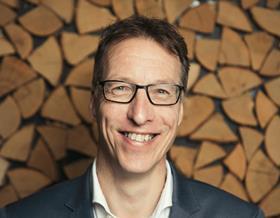
Globally, the value of the food going to waste each year is about €750bn, according to Toine Timmermans, programme manager of Sustainable Food Chains at Wageningen University & Research and former coordinator of anti-waste projects Fusions and Refresh. He serves as director of Samen Tegen Voedselverspilling (Food Waste Free United), a platform focused on the prevention and reduction of food waste throughout the supply chain.
“The aim is very concrete and very basic,” explains Timmermans. “We want, in the Netherlands, to halve our food waste by 2030. There is no individual organisation that can solve this by themselves. So we need to work together systemically to utilise more of the food that we produce and stop unnecessary food waste happening.”
According to Timmermans, all companies and organisations involved in the Food Waste Free United platform have pledged to meet ambitious waste targets while remaining transparent. They must take action to reduce waste in their own operations while helping consumers do the same.
“About one-third of manmade greenhouse emissions is related to our food system,” he says. “If you imagine that a quarter to a third of food is produced but not utilised, this is the first thing you can stop.”
One company that has joined the platform is Liquidseal, whose natural coating is able to extend the shelf-life of fresh produce throughout the supply chain. “Consumers want to have less plastic packaging on their products, they want to have less chemicals on their products and they really want to reduce food wastage,” says managing director Victor Monster. “And all these three items we are addressing with our product.”
“For the retailer you can extend the moment of sale, and the consumer has more time to consume the product,” he continues, “because it is at the end of the supply chain that you see food wastage at its highest.”
In the EU, Liquidseal is currently only allowed on hard-skinned fruits. “It is fully compostable, biodegradable, even edible,' says Monster. 'But still the regulations say you cannot use it on all types.'
Timmermans says it is crucial to drive innovation for such solutions, including the removal of 'blocking legislation'. “We have identified the top ten legal barriers that prevent businesses from becoming more circular and adopting more circular business models and preventing food waste,' he says.
“Creating an ecosystem for innovation is a crucial element for getting applications and solutions that everyone thinks fit all the boxes regarding trends and regarding impact,” he goes on. “That doesn’t mean it’s automatically going to happen. So putting the pressure on from the consumer side and showing that it helps for these individual retailers to meet their targets is also crucial. We need everyone on board.”



